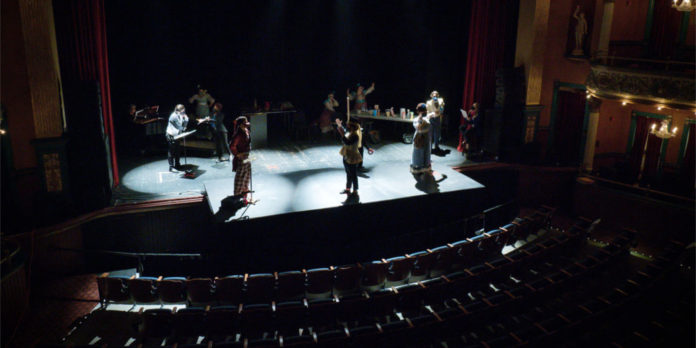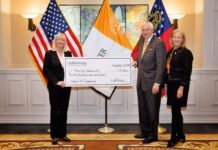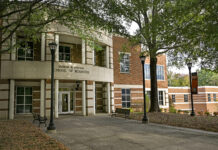About two weeks before Mercer University Opera was set to perform Donizetti’s comic opera, “Viva la Mamma!,” the University sent students home due to COVID-19.
As the pandemic persisted into the summer, vocalist Samantha Friedman had what she described as an existential crisis.
“Because COVID is most likely spread by aerosols, singing can be one of the more dangerous things to do,” said Friedman, a graduate student studying vocal performance at the Townsend School of Music.
She worried the singing that she spent her life dedicated to may become a thing of the past.
Then, she started thinking: Opera already is exaggerated and dramatic. What if they incorporated masks and social distancing as part of the show and staged it in an exaggerated way?
She talked to Dr. Martha Malone, director of Mercer University Opera and professor of voice, about her idea.
“She said we could update the dialogue to the time of COVID and make the masks part of the comedy,” Dr. Malone said. “And I said, ‘Oh my gosh! That’ll make it even funnier.”
Before hearing Friedman’s idea, she didn’t even think it would be possible to produce a fully staged performance this semester because of limitations imposed by the pandemic.
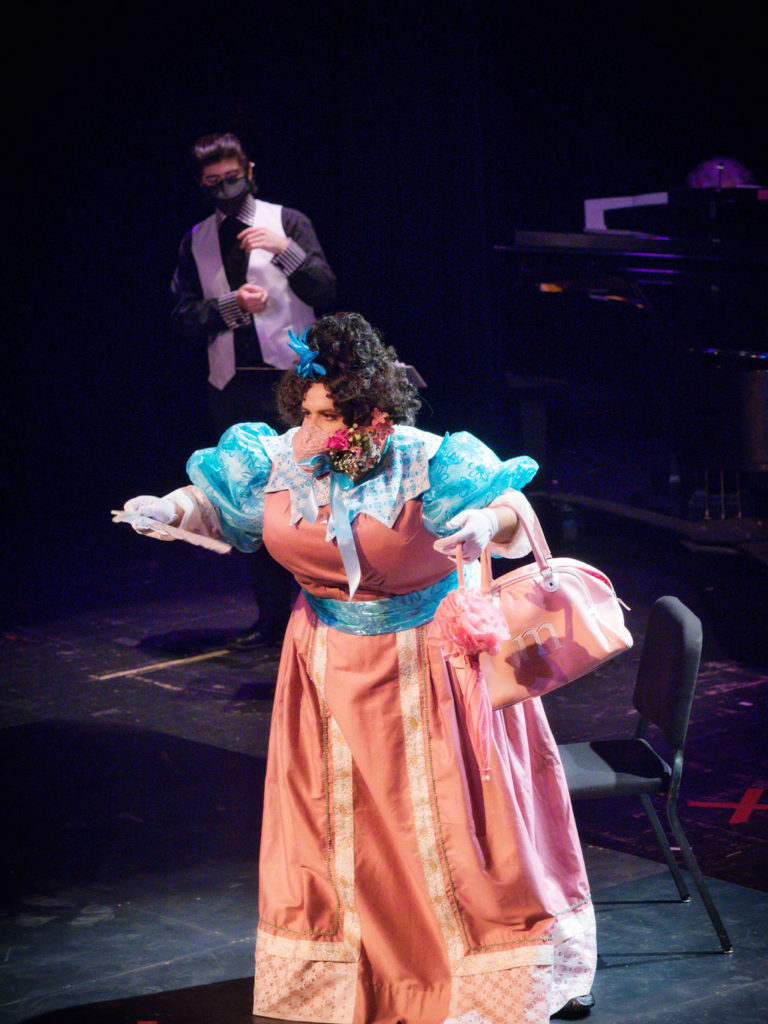
“But when Samantha suggested updating the English dialogue to the present, I knew it would work perfectly,” she said.
“Viva la Mamma!” is otherwise known as “Le convenienze ed inconvenienze teatrali,” which translates to “long live the mother” and “theatrical conventions and inconveniences.”
“The plot revolves around an opera company in rehearsal for the premiere of a new show, and the composer is still writing it — with opening night only three days away,” Dr. Malone said. “The singers are all vying to be assigned the big solo numbers, and competition is cutthroat. When Mamma Agata, the ultimate stage mother, takes over, the rehearsal dissolves into mayhem.
“The comedy is slapstick, but the music is pure Donizetti — brilliant and beautiful.”
Friedman took an online class in comedy writing and got to work. About a week later, the new script was ready. This version takes place during the COVID-19 pandemic.
“Her script is terrific,” Dr. Malone said. “The masking and social distancing became integral to the story and made it even funnier. It’s definitely a product of the year 2020.”
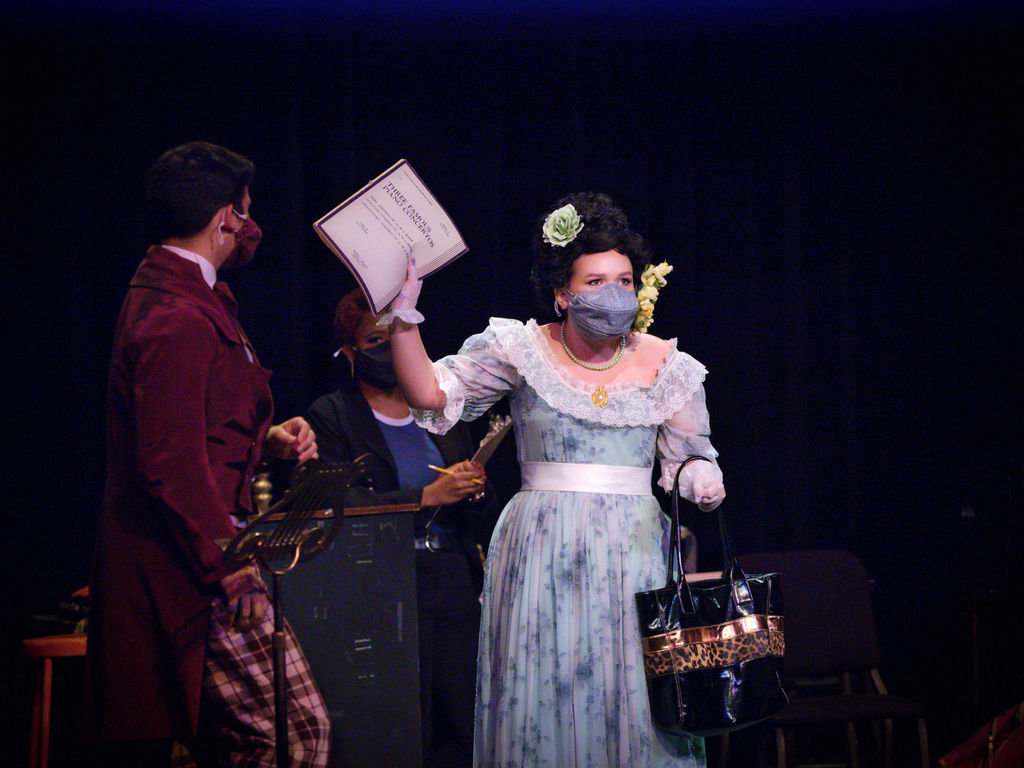
Performing without an audience
In mid-September, the small cast performed “Viva la Mamma” to an empty theater at The Grand Opera House, where the show was performed to accommodate social distancing.
“On stage, we created safely distanced pools of light that were our 12 singers’ personal ‘singing spots,’ where the cast stood anytime they were singing, in order to minimize the risk of inhaling aerosols from another singer,” Dr. Malone said.
Since it was unsafe to perform to a live audience, the group brought in filmmaker Jave Bjorkman, owner of And So We Go Productions and a 2017 Mercer alumnus, to help create an artistic video of the show.
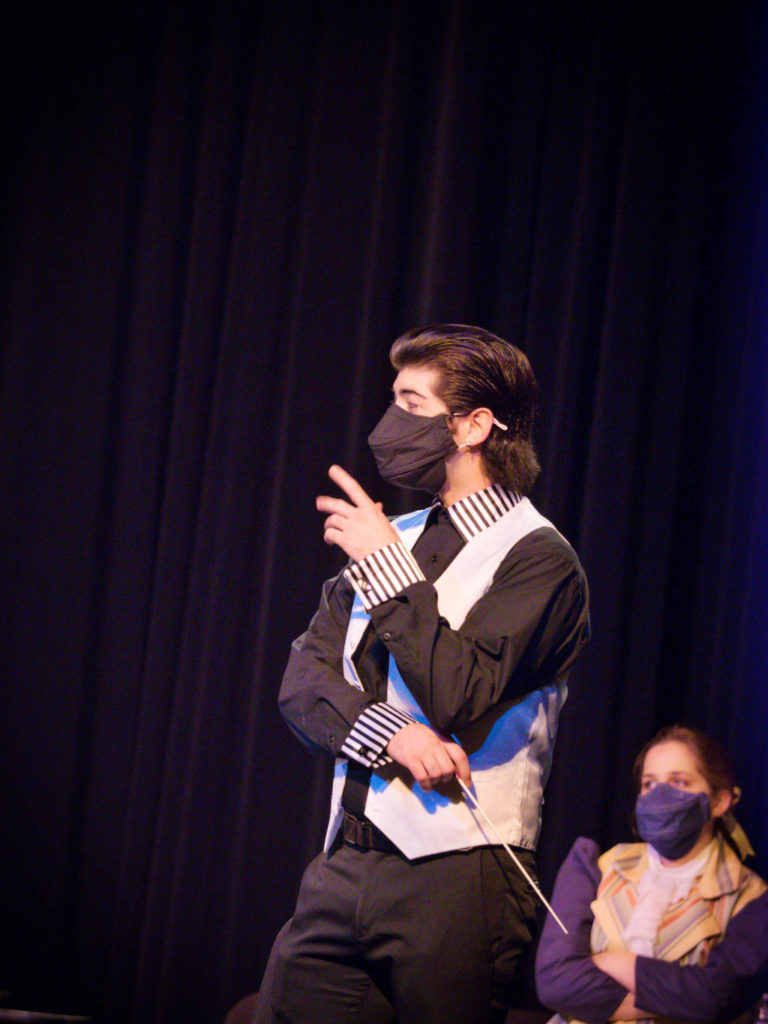
“This addressed the problem of having visually static musical numbers, by using camera angles to create the movement,” Dr. Malone said. “It’s been a great opportunity for all of us to learn something about filmmaking and how to work in a medium that’s new for MU Opera.
“I’m so delighted that we were able to make some lemonade from the lemons we were handed.”
The entire performance, which is now available online, contains subtitles. Even though only the songs are in Italian, the masks can make some of the English dialogue hard to understand, Dr. Malone said.
Because masks and social distancing were built into the script, they became gags that added to, instead of detracting from, the opera.
“Normally, if you’re on stage, or just in real life, if you pass a piece of paper, you’re right next to each other,” said Richard Kosowski, director of graduate studies, chair of the vocal studies area and professor of music. “Since this is taking place during the pandemic, there’s a sight gag of people stretching to grab music.”
Friedman worried the jokes would fall flat without an audience. But that wasn’t the case.
“The cast was really good. They did a fabulous job,” she said. “They knew where the laugh was supposed to fall. They knew where there would be applause.”
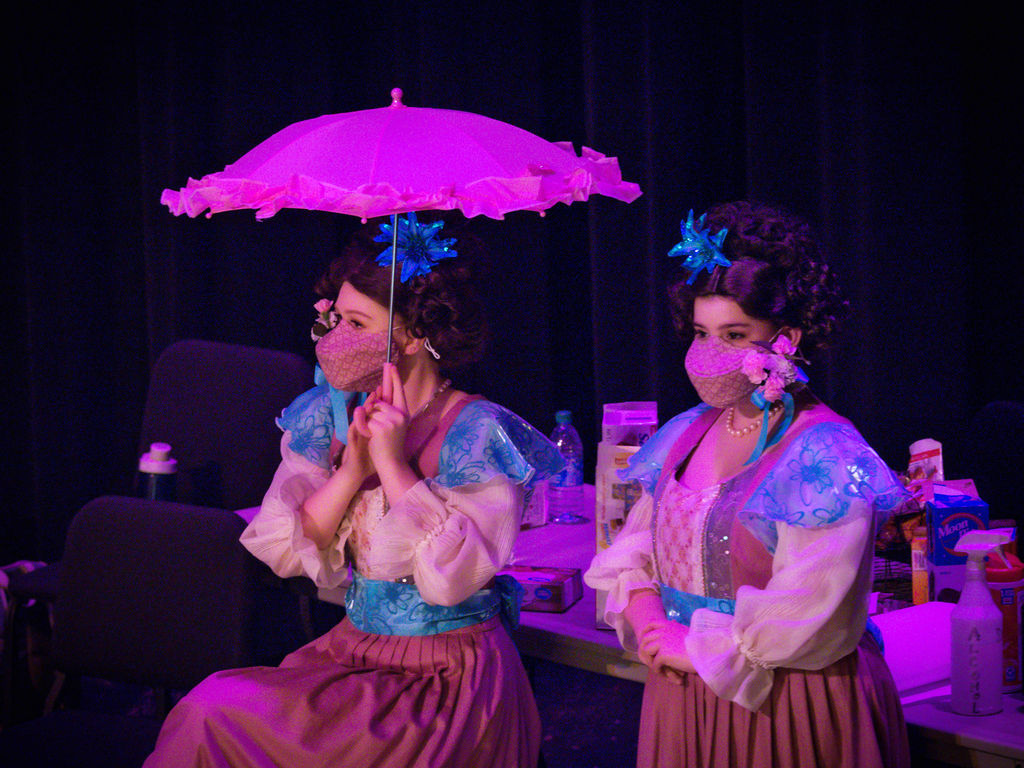
A rewarding experience
Mary Grace Roark, who graduated with a Bachelor of Music Education from Townsend in May and is now pursuing her master’s in the performance program, played Pipetto in the opera. Pipetto is a “pants role,” meaning it’s meant to be played by a performer of the opposite sex.
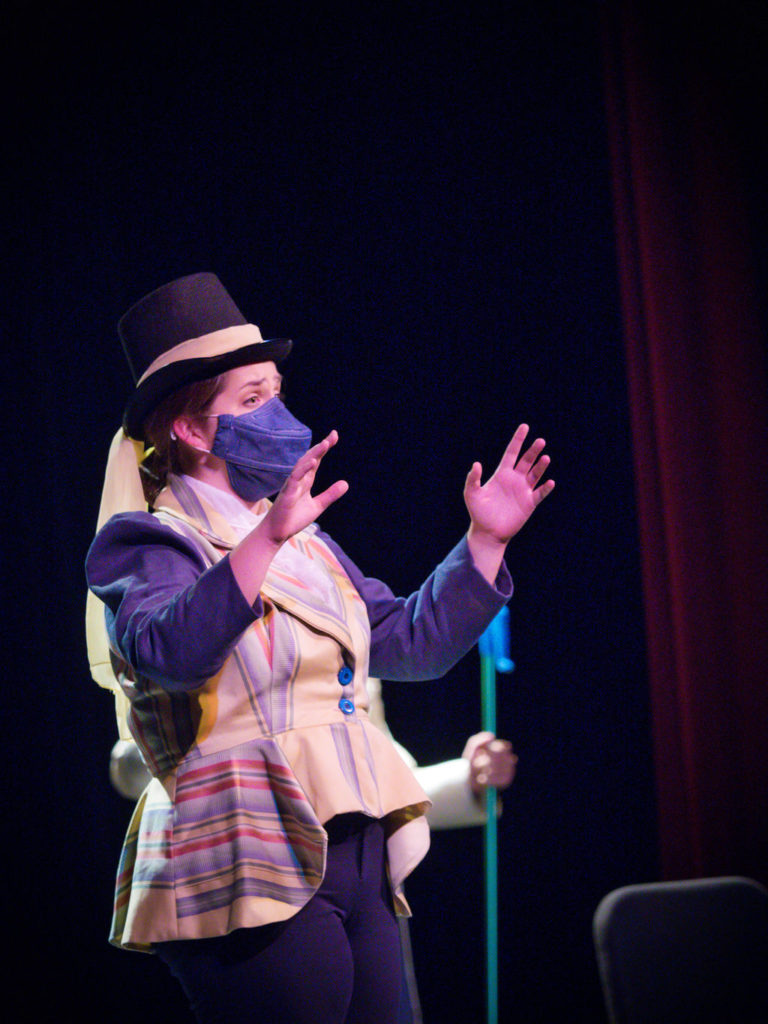
“I’m playing a seasoned artist — a singer who’s been in the business, knows the ins and outs of singing professionally and is just there for the job and is annoyed all the time throughout the production by everyone around,” Roark said.
She said working on the production was a challenging and rewarding experience. Singing in a mask was difficult to get used to, and she had to find new ways to interact with the cast.
The social distancing taught the students to be more self-reliant since they couldn’t rely on hearing pitches and sequences in the music from the singers next to them, Kosowski said.
“It changed how they counted in the music, how they were breathing in the music, how they were tuning in to everyone around them,” he said. “It helped mostly with their listening skills, and it helped them develop the skill of being truly independent on the stage.”
Dr. Malone said she has been “incredibly impressed by our singers, as I watched them adapting so well, singing beautifully and bringing their characters fully to life in those masks.”
“Under normal circumstances, performers get a lot of energy from the reactions of an audience, so I was thrilled to see them performing with professionalism and unquenched enthusiasm,” she said. “They approached the filmed performance as if the empty theater’s 1,200 seats were sold out.”
Roark said the students’ passion for performing pushed them to get the show done.
“It was a really rewarding experience to just do the smallest production in the weirdest of ways,” Roark said.

